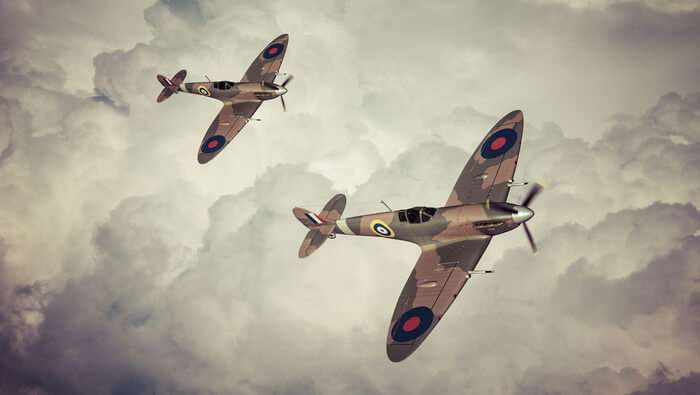
The Battle of Britain
The Battle of Britain: A Pivotal Moment in World War II
In the narrative of World War II, few events hold as much significance as the Battle of Britain. Fought in the skies above the United Kingdom during the summer and autumn of 1940, this battle wasn’t merely a clash of fighter planes. It was a crucial turning point that determined the course of the war.
Prelude to the Battle of Britain
The Battle of Britain followed France’s surrender to Germany in June 1940. With Western Europe largely under Nazi control, Britain stood as the next target. Germany’s Luftwaffe (air force) was tasked with gaining air superiority over the UK, a necessary precursor to a full-scale invasion codenamed Operation Sea Lion.
The Combatants
Facing off in the skies were the German Luftwaffe, with a formidable array of bombers and fighters, and the British Royal Air Force (RAF). Despite being significantly outnumbered, the RAF had two key advantages: the integration of radar technology into their air defence network, and the outstanding aircraft like the Spitfire and Hurricane.
The Battle of Britain Unfolds
The Battle of Britain is generally divided into four phases. The first phase (10 July – 11 August 1940) saw the Luftwaffe targeting coastal shipping and defences. The second phase (12 August – 23 August 1940) marked a shift to the bombing of RAF airfields and infrastructure. This phase was arguably the most perilous for the RAF, with several key airfields being heavily damaged.
In the third phase (24 August – 6 September 1940), attacks continued on airfields but also expanded to include other military and industrial targets. However, on 7 September, in the fourth and final phase, the Luftwaffe changed tactics again and began the devastating bombing of London and other cities, known as the Blitz.
A Turning Point
While the Blitz caused immense destruction and loss of life, the shift in focus from RAF targets gave the British air defences a chance to recover. On 15 September 1940, now commemorated as Battle of Britain Day, a large-scale Luftwaffe attack was significantly repelled, convincing German High Command that the Luftwaffe could not achieve air supremacy. This marked the failure of Operation Sea Lion, leading Hitler to postpone the invasion plans.
The Significance of the Battle of Britain
The Battle of Britain was a crucial victory for the Allies and a significant setback for Germany. It was the first major defeat for the Nazis in World War II and a crucial turning point in the conflict. The battle displayed the effectiveness of the RAF and the resilience of the British people. It’s also famous for Winston Churchill’s words, paying tribute to the RAF pilots: “Never in the field of human conflict was so much owed by so many to so few.”
Even though the Battle of Britain was fought in the air, its outcomes were felt on the ground and shaped the course of World War II. As we reflect on this crucial period in history, we gain a deeper understanding of the resilience, courage and strategic decisions that played a significant role in shaping our wo

